Narrow by...
Topics & regions
- Fire History (2)
- Invasive Species (2)
- Smoke & Air Quality (2)
- Fire Policy (3)
- Human Dimensions of Fire (3)
- Fire & Traditional Knowledge (4)
- Mojave and Sonoran Desert (4)
- Wildfire Operations & Management (4)
- Wildlife & Aquatic Ecosystems (5)
- Climate & Fire (8)
- Central & Southern California (9)
- Restoration (9)
- Northern California (11)
- Fire Behavior & Weather (12)
- Model/Tool/Technology (12)
- Prescribed Fire (18)
- Fire Communication & Education (19)
- Fuels & Fuel Treatments (19)
- Post-fire Environment & Management (19)
- Fire Ecology & Effects (26)
- Wildland-Urban Interface (WUI) (30)
- Sierra Nevada (41)
Type
Date
- April 2025 (6)
- March 2025 (4)
- January 2025 (1)
- October 2024 (1)
- August 2024 (2)
- May 2024 (2)
- April 2024 (1)
- March 2024 (1)
- February 2024 (3)
- December 2023 (1)
- November 2023 (1)
- October 2023 (1)
- September 2023 (1)
- August 2023 (1)
- July 2023 (1)
- March 2023 (1)
- February 2023 (4)
- November 2022 (3)
- October 2022 (2)
- September 2022 (1)
- August 2022 (1)
- July 2022 (2)
- May 2022 (1)
- April 2022 (1)
- March 2022 (2)
- February 2022 (1)
- January 2022 (2)
- November 2021 (4)
- October 2021 (4)
- September 2021 (1)
- August 2021 (1)
- July 2021 (2)
- June 2021 (3)
- May 2021 (4)
- April 2021 (4)
- March 2021 (2)
- February 2021 (7)
- January 2021 (4)
- December 2020 (3)
- November 2020 (6)
- October 2020 (4)
- September 2020 (1)
- July 2020 (1)
- June 2020 (3)
- May 2020 (5)
- April 2020 (5)
- March 2020 (6)
- February 2020 (4)
- January 2020 (3)
- November 2019 (3)
- October 2019 (5)
- September 2019 (2)
- August 2019 (3)
- June 2019 (3)
- May 2019 (8)
- April 2019 (6)
- March 2019 (3)
- February 2019 (2)
- December 2018 (1)
- November 2018 (3)
- October 2018 (9)
- August 2018 (4)
- July 2018 (1)
- June 2018 (2)
- May 2018 (6)
- April 2018 (4)
- February 2018 (1)
- December 2017 (1)
- November 2017 (5)
- October 2017 (5)
- August 2017 (1)
- July 2017 (1)
- June 2017 (6)
- May 2017 (4)
- March 2017 (3)
- February 2017 (3)
- November 2016 (4)
- October 2016 (6)
- September 2016 (2)
- August 2016 (2)
- July 2016 (2)
- June 2016 (1)
- May 2016 (2)
- April 2016 (4)
- March 2016 (2)
- February 2016 (3)
- January 2016 (3)
- December 2015 (1)
- November 2015 (3)
- October 2015 (5)
- September 2015 (1)
- August 2015 (1)
- June 2015 (2)
- May 2015 (3)
- April 2015 (1)
- February 2015 (1)
- March 2014 (1)
- January 2014 (1)
- December 2013 (2)
- May 2013 (2)
- April 2013 (1)
- October 2012 (1)
- July 2012 (1)
- February 2012 (1)
- January 2012 (1)
- November 2011 (1)
- October 2011 (2)
- June 2011 (1)
Seeking knowledgeable members of the fire community to oversee our edits.
The California Society of American Foresters and California Fire Science Consortium are partnering to host the first annual California Forest Science Symposium on March 24-25, 2025. This symposium is bringing together researchers, land managers, and practitioners to share new knowledge on forests and their management.
CAL FIRE, Berkeley Forests, and the California Fire Science Consortium are sponsoring a morning workshop at the California Forest Science Symposium to highlight and discuss landscape-scale prescribed burning. This is an add-on workshop that is free and open to the public, though attendance will be limited.
The California Fire Science Seminar Series will return on February 4th, 2025. Join us every Tuesday through March 18th at 10 am PT for virtual presentations and discussions on emerging fire science topics from a range of topics and speakers.
Join us for an engaging three-day webinar series titled Human Causes and Human Consequences of Wildfires in the Western United States. This event is organized by the six regional exchanges of the Joint Fire Science Program's Fire Science Exchange Network: the Northwest Fire Science Consortium, Great Basin Fire Science Exchange, California Fire Science Consortium, Northern Rockies Fire Science Network, Southern Rockies Fire Science Network, and Southwest Fire Science Consortium.
The Mojave Desert Native Plant Materials Development and Restoration Workshop will be held on October 8th through the 10th in Victorville, CA. This event is hybrid, with both a zoom and in-person option. The workshop is free and open to the public.
The 2003 Canoe Fire burned through nearly 10,000 acres of old-growth redwood forest in Humboldt Redwoods State Park, making it one of the largest fires to affect these iconic forests in recent history. While the fire had mostly low severity effects, some areas burned at moderate and high severity. Now, after 20 years of regrowth, some of the beneficial effects have dwindled, while overs have been maintained through prescribed fire and other management activities. Join the park managers and researchers that were involved in the suppression, management and monitoring efforts for a discussion about the Canoe Fire’s lasting effects, and the past and future of fire use in redwood forests. *Tour sites may require up to 1mi of hiking on uneven single track trails*
This tour will explore the extensive and diverse fire histories of old-growth redwood forests. We’ll tour groves that have burned under various fire return intervals and burn severities over the last few centuries, and discuss the implications for forest management and ecology in the context of cultural fire, forest ecology, and nearby fire history research. Participants will also learn to tune their eyes to the widespread evidence of fire in these ancient forests. *The final tour site will require up to .5mi of hiking on uneven single track trails.*
Researchers and practitioners from all disciplines related to post-fire debris flow hazards are invited to attend a 2.5-day conference to synthesize recent research and plan for the future of science in this field. To find out more information or to register, visit: https://www.cafirescience.org/establishing-directions-in-postfire-debris-flow-science-conference
The fourth California Chaparral Symposium (Cal Poly SLO; May 7-9, 2024) will focus on science, management, and conservation of chaparral ecosystems.
For the second talk of the 2024 FFERAL lecture series, Dr. Malcolm North will discuss tree spatial patterns and linkages to forest resilience.
For the second talk of the 2024 FFERAL lecture series, Dr. Scott Stephens will share results from a 20-year forest restoration study of prescribed fire and mechanical treatments in the northern Sierra Nevada.
This webinar will focus on satellite-based and field-based fire severity metrics: which ones work best, where, and when?
For the inaugural talk of the 2024 FFERAL lecture series, Dr. Sarah Bisbing will present the experimental design and initial post-treatment results from the Adaptive Management Experiment (AMEX), a multi-year, multi-location empirical test of silvicultural approaches to forest resilience in a changing climate.
This event will include workshops, field trips, and 3 full days of presentations, discussion groups, and networking opportunities around the theme, “Igniting Connections: Celebrating our fire family across generations, cultures, and disciplines.”
For more information and to register, visit https://afefirecongress.org/
The International Association of Wildland Fire is presenting the workshop in partnership with the Wildfire Fire Leadership Council (WFLC) and the Western, Southeast, and Northeast Regional Strategy Committees.
The Cohesive Strategy remains the solid framework by which to address and identify solutions for today’s complex wildland fire issues. In providing the pathway to change the negative trajectory of wildland fire, the Cohesive Strategy continues to evolve to meet the current and future challenges facing federal, tribal, state, local, and nongovernmental stakeholders.
The National Workshops were conceived to help stakeholders understand the Cohesive Strategy and see themselves as part of the solutions to wildland fire issues across the nation. The Workshops helped to build and strengthen relationships, support Cohesive Strategy activities, and facilitate Cohesive Strategy implementation.
Coastal Quest, in partnership with Ventura County Wildfire Collaborative, is proud to present the first California Wildfire Conference. This three-day exchange will bring together a diverse community of wildfire practitioners to focus on understanding, preventing, and recovering from wildfires.
For more information and to register, visit:
https://coastal-quest.idloom.events/californiawildfireconference
This workshop series will help landowners develop plans to improve and protect their forest lands in an ecologically and economically sustainable manner. The workshops will address management objectives and planning, forest restoration, fuels reduction, project development, permitting, and cost-share opportunities. Participants will connect with other landowners and learn how to collect information to develop their own management plans.
Recent destructive wildfires in northern California provide an opportunity to investigate how different factors influence home survival. We conducted an analysis of the 2018 Camp Fire, obtaining measurements from a randomly selected subset of homes in Paradise, to determine if nearby burning structures and/or nearby vegetation contributed to home survival, and whether new building codes in place since 2008 helped. The findings, corroborated by photographs taken of damaged but not destroyed homes, point to changes that could substantially improve outcomes.
This workshop series will help landowners develop plans to improve and protect their forest lands in an ecologically and economically sustainable manner. The workshops will address management objectives and planning, forest restoration, fuels reduction, project development, permitting, and cost-share opportunities. Participants will connect with other landowners and learn how to collect information to develop their own management plans.
Save the dates for the 2023 Range Management Advisory Committee Educational Series in Feb and March.
More information at https://spranch.calpoly.edu/RMAC
Part of the Fire and Forest Ecology Random Lectures, open to the public
The Wildfire Resilient Structures (WiReS) conference addresses the WUI fire risk problems inherent to the built environment to support resilient and equitable communities.
Part of the Forest Ecology Random Lectures, open to the public
Next webinar with Dr. Phil McCormack has been postponed
This interactive workshop will provide practitioners and decision-makers with tools and ideas that support positive fire outcomes and identify opportunities for accelerated Cohesive Strategy implementation. Our program will focus on our theme of the hard truths of risk that are inherent in implementing cross-boundary, large landscape, and community-wide implementation.
This trip has been postponned due to weather!
Description: The ACCG Monitoring workgroup and the SOFAR Landscape Design Team will host a one day field tour that will highlight ongoing restoration planning efforts in the Caldor Fire building upon an earlier field tour which highlighted ongoing monitoring and research in the Power Fire. We hope this field tour will provide on-the-ground examples and the opportunity to discuss past and future management plans for wildfire recovery in mixed-conifer forests and riparian areas.
Sign up for tour at https://forms.gle/qnAXghqaPxWWVSko8
Presented by the University of California's Division of Agriculture and Natural Resources, the 8th California Oak Symposium is intended for anyone involved in research, education, management, and conservation of California’s oak woodlands. This includes foresters, range managers, tribes, arborists, landowners, community groups, land trusts and policy makers.
More information and registration at https://ucanr.edu/sites/oaksymposium/
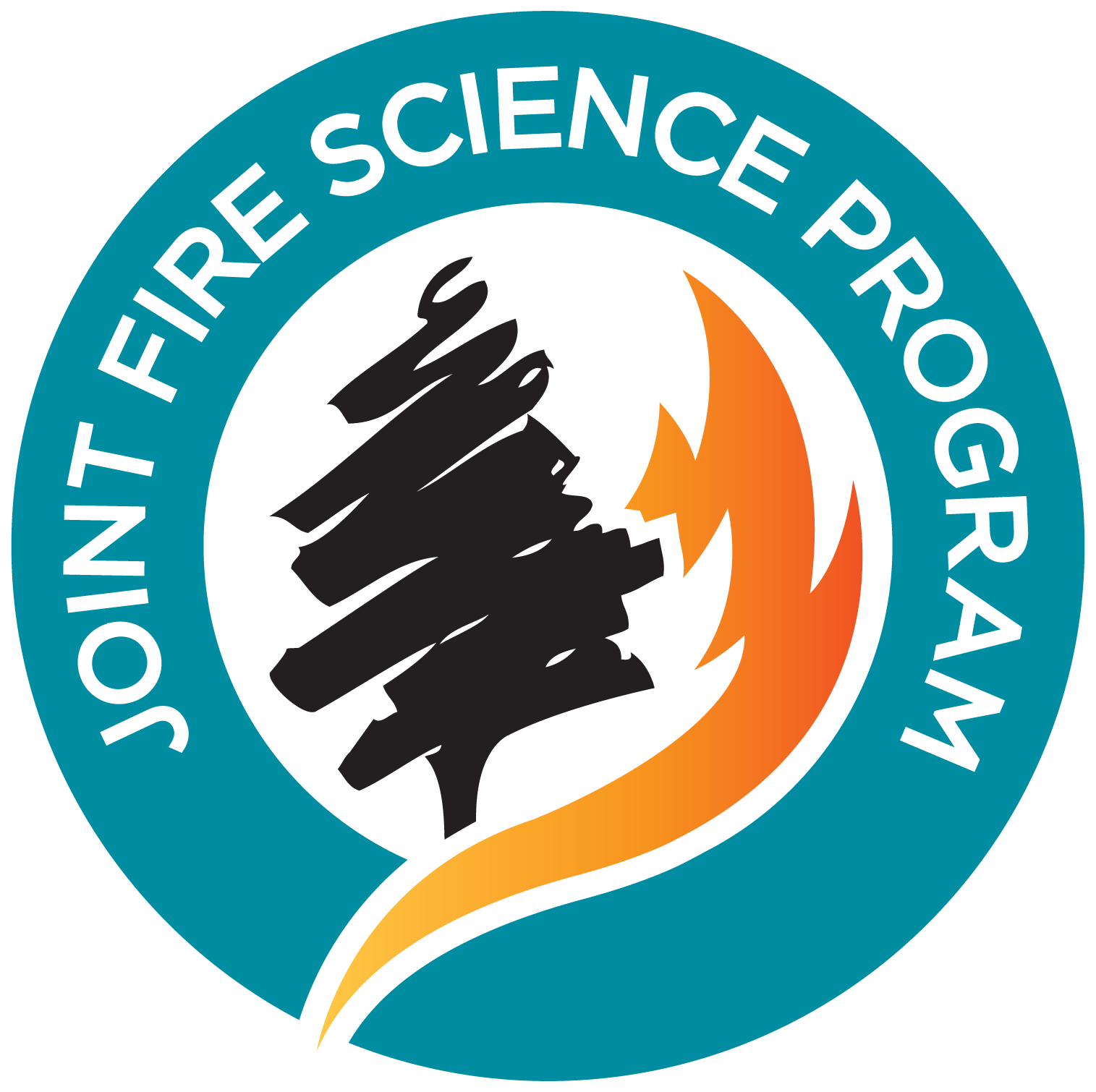




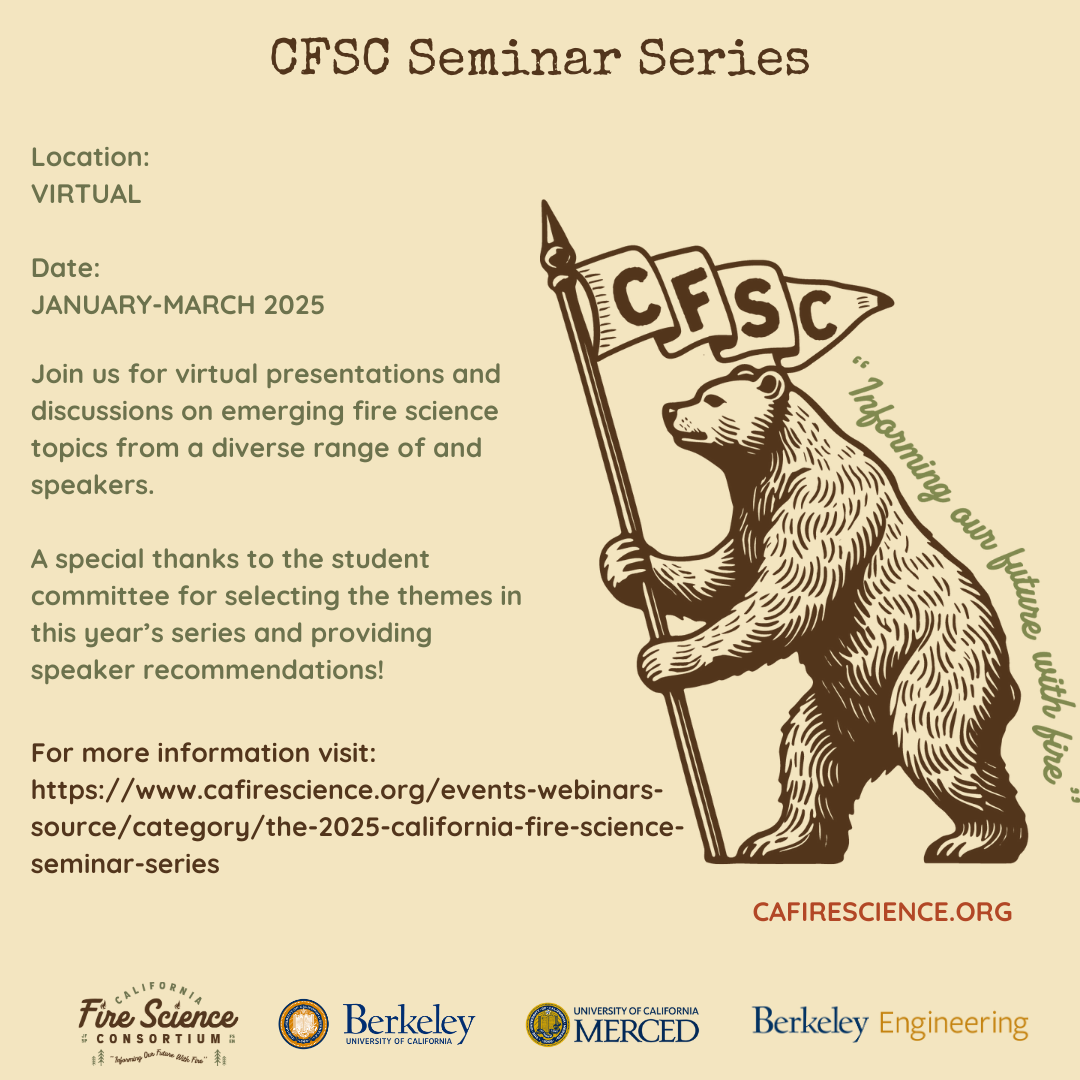


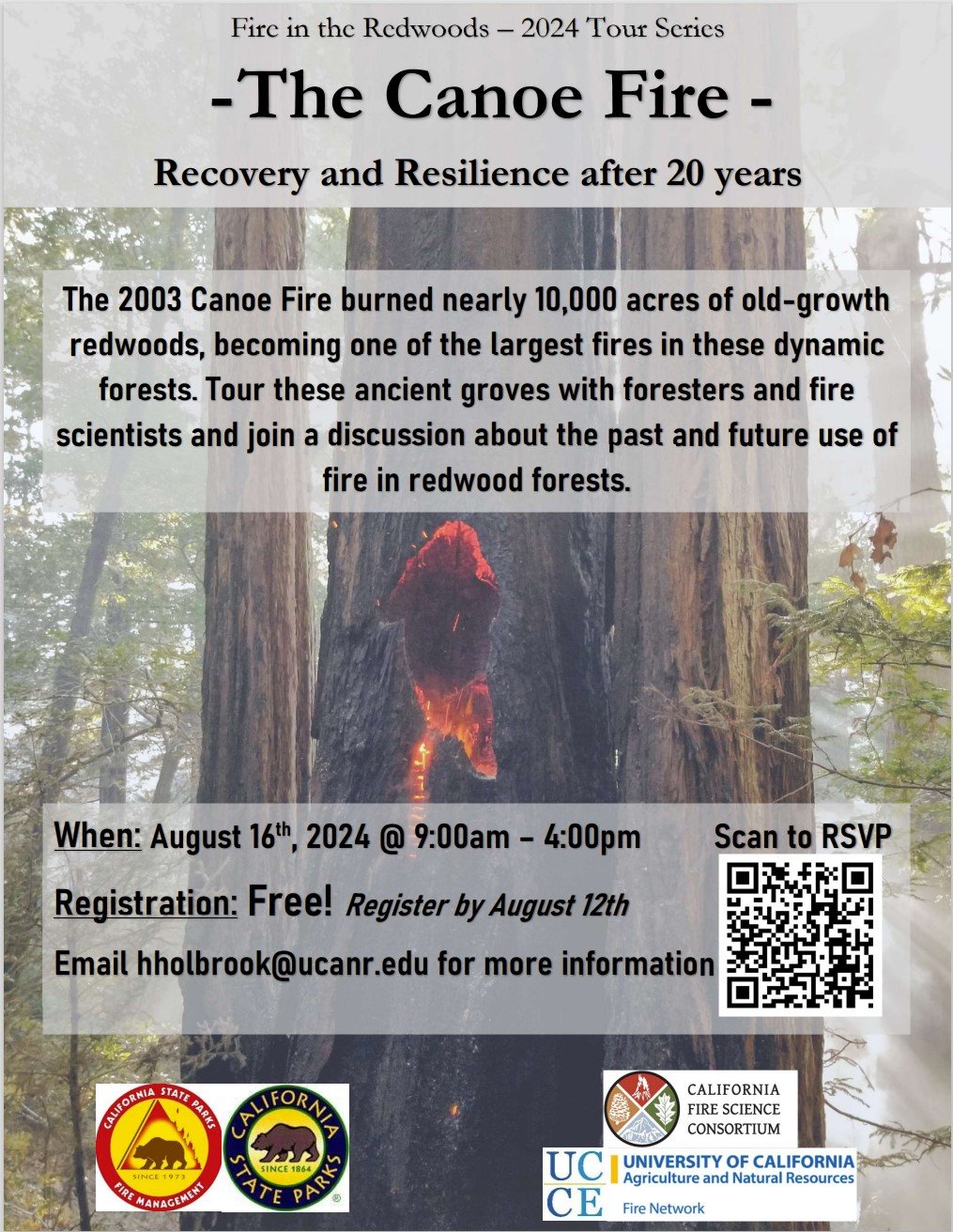




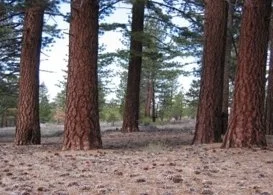









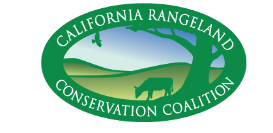


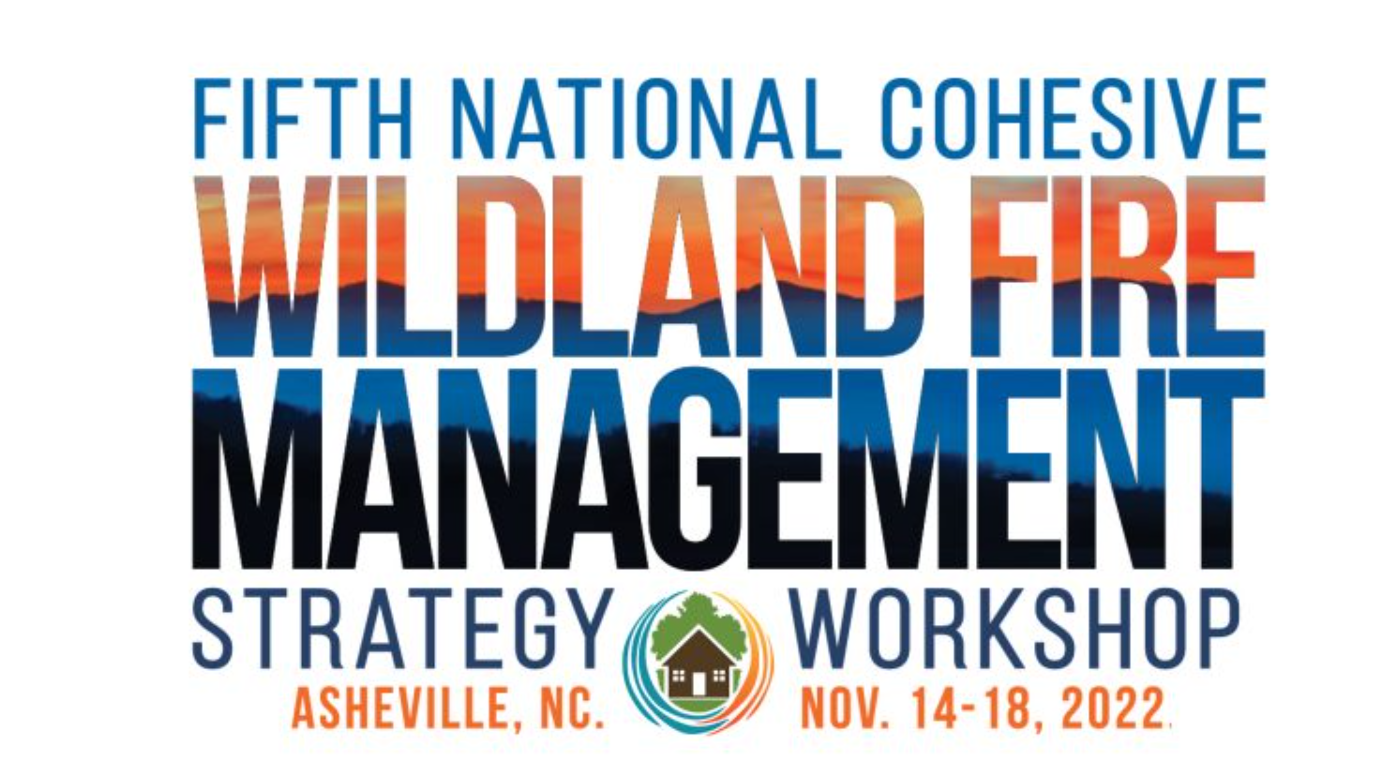




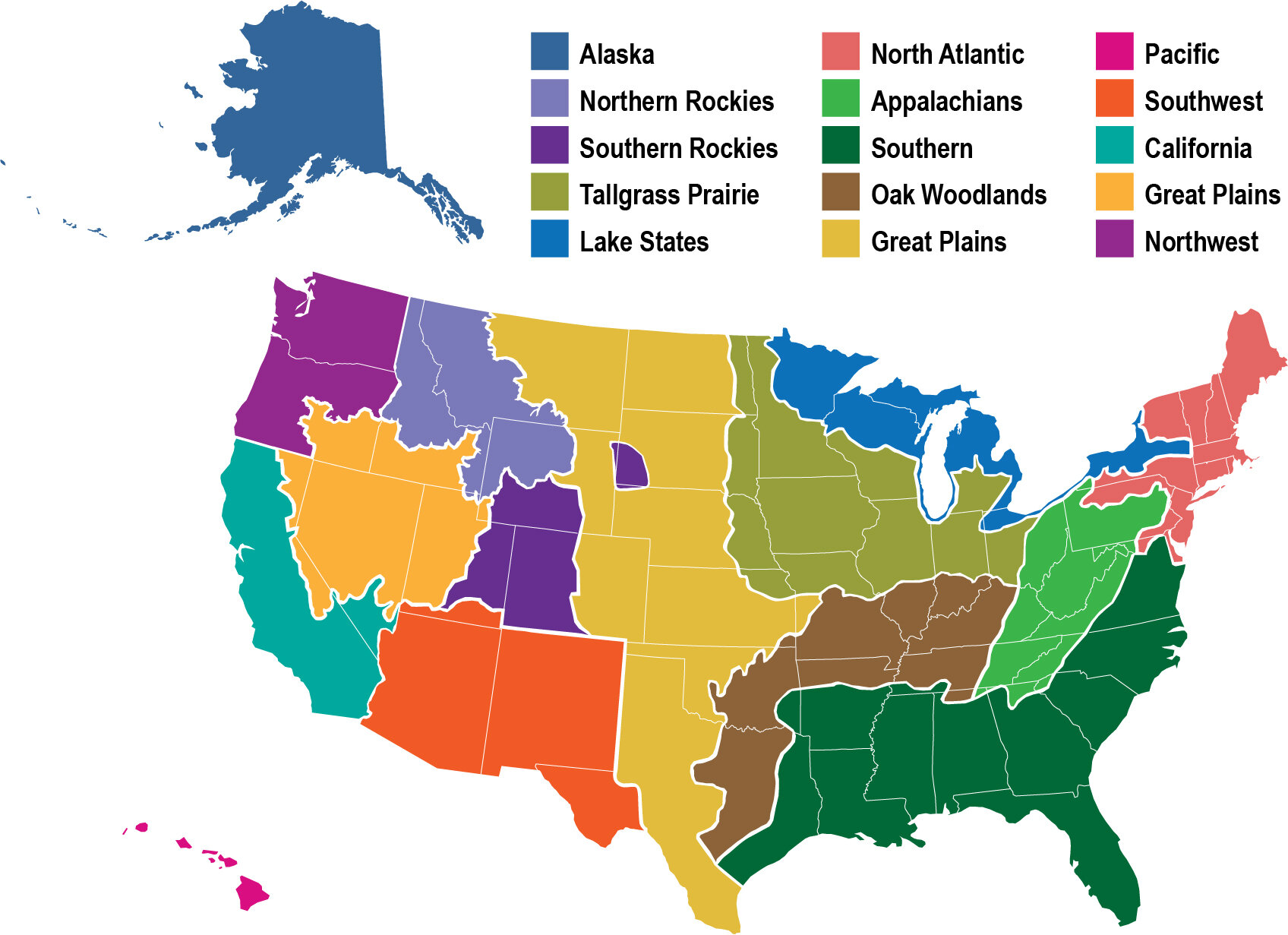
Part of the Fire and Forest Ecology Random Lectures, open to the public